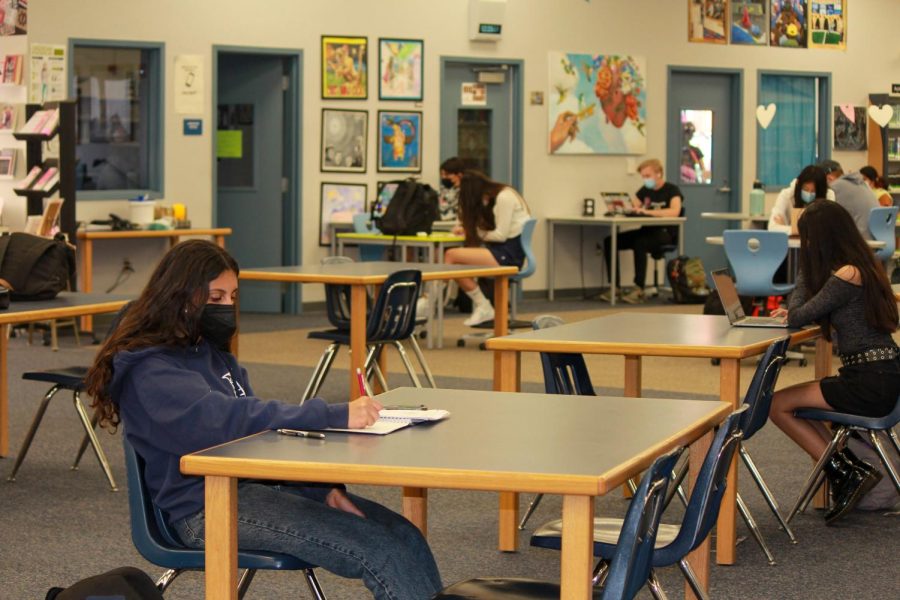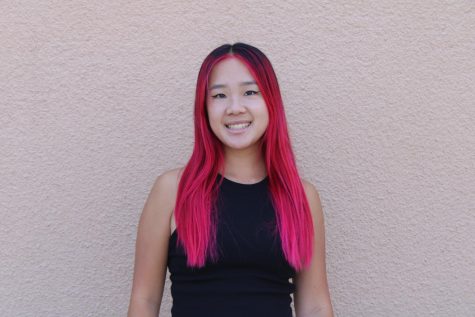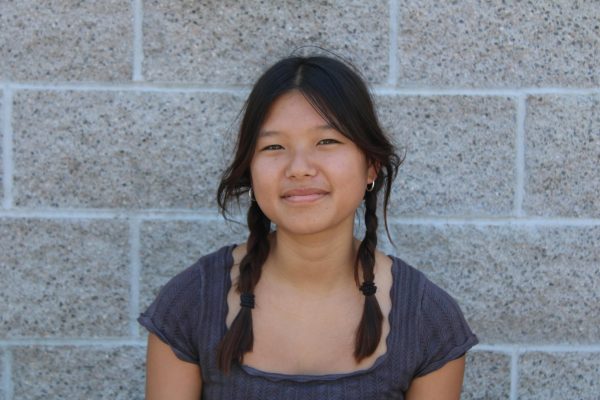Exploring Dual Enrollment and Other College Credit Pathways
Whether or not students are looking to accumulate college credits or merely explore subjects of interest, dual enrollment and other college course programs are fresh alternatives in one’s pursuit of knowledge.
March 9, 2022
Given UHS’s record of academic excellence and the competitive nature of academia in Irvine, it is no wonder that many students enroll in additional college courses and dual enrollment programs throughout their high school career. While UHS offers a plethora of AP courses on campus, there are many reasons why students choose to take additional courses.
“I wanted to go more in depth into the subject I was taking, French, and also get a little experience with taking a college course,” junior Elizabeth Mathew said. “The class I took was also only a semester class, so after the fall semester my course was over, and now in the spring semester I can focus on studying for finals and AP’s.”
For the fall semester, Mathew enrolled in an intermediate French class via dual enrollment, a pathway that allows high school students to participate in college courses that occur during the regular school year. According to Mathew, enrolling in the French course at Irvine Valley College was a convenient solution to her full high school schedule. Instead of taking French 3 at UHS, she was able to continue her language studies while simultaneously taking six academic classes at school.
“What I liked about dual enrollment was the freedom I had with the class,” Mathew said. “It was a two hour zoom meeting each week, along with some online work. Because of this, I could really plan out my week and workload.”
Similar to dual enrollment, students can also sign up for college courses during the summer. These courses may be advertised directly to students through IUSD’s Summer College at IVC program, which provides a schedule of classes that would appeal to high school students. Some classes listed in the 2021 Summer College catalog included Introduction to Administration of Justice, Introduction to Business, Life Science Laboratory, and Introduction to Psychology.
Although some courses feature content similar to the AP curriculum offered in high school college credit courses, the classes offered during the summer differ in learning environment and pace. Due to the pandemic and the nature of summer courses, IVC classes were held online and content was relayed at a relatively accelerated pace. According to junior Miyako Kato, who took Introduction to Psychology, most coursework was completed asynchronously with live Zoom lectures and the course covered a wide range of topics pertaining to the subject.
“I decided to take the college credit course mainly because it was accessible, and I felt I could get a better experience in a college course with a professor,” Kato said. “The content was really engaging, and even though everything was online, the professor and content kept me interested.”
Kato’s only critique of the program was the class’s lack of group engagement, which was mainly due to the online format. Otherwise, the experience was informative and Kato enjoyed the rigor of the course.
In addition to course content, some students find the nature of college courses to better prepare them for the future. Another student, junior Amber Yeung, sought the challenge of a college level course and enrolled in a Biology class that suited her interests in the area of study.
“I was interested in Biology beforehand, so I decided to just take the opportunity and attend the IVC course,” Yeung said. “Overall, I’m glad I took the class and was able to hone my study skills in the summer and develop a way of studying that worked for me.”
The course, lasting six weeks, included 20 recorded lectures and weekly quizzes that helped measure learning progress in the class. Though the material was challenging, additional resources like office hours were offered, Yeung noted.
Whether or not students are looking to accumulate college credits or merely explore subjects of interest, dual enrollment and other college course programs are fresh alternatives in one’s pursuit of knowledge.






